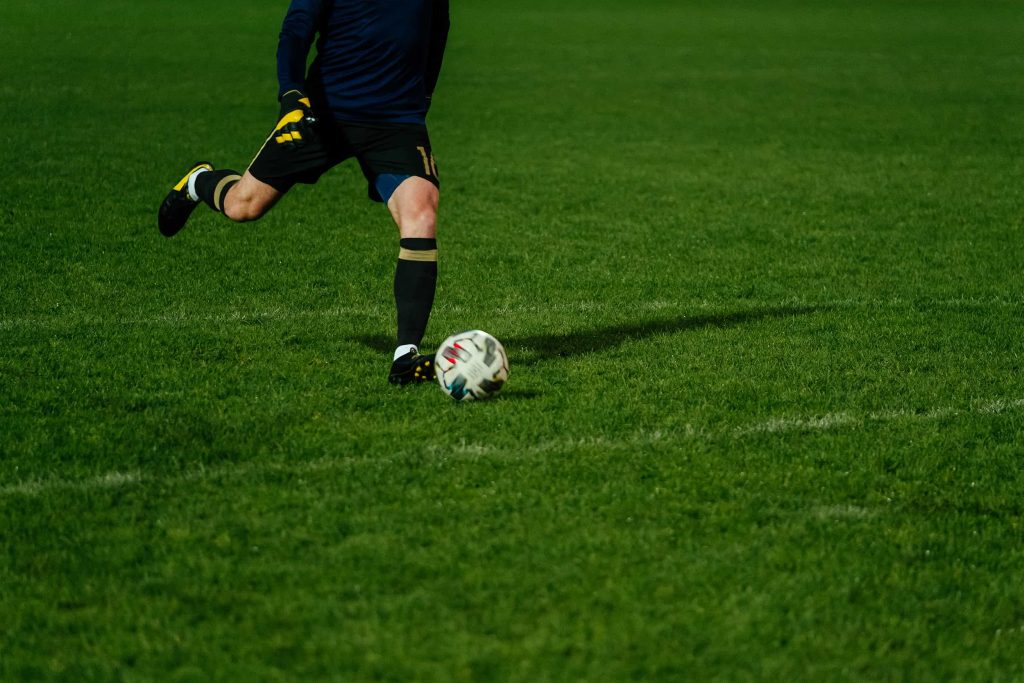Frustration and anger are two of many emotional buy-ins to the world of football fandom. Players break hearts when they leave one club for another; teams slipping up in a title race or relegation battle can certainly destabilise one’s emotional wellbeing.
Yet there is another form of frustration within football, one where a talented player never quite gets to fulfil his or her potential in another environment; Lionel Messi and the English Premier League or Pelé and his domestic career that was never tried and tested in Europe.
Axel Witsel’s career is one that has left many wanting more, and although there is no debate surrounding the legacy of the aforementioned South American duo, Witsel’s career has left an element of curiosity regarding what could have been.
Perhaps, however, there is a level of greed or selfishness behind this line of thought. After all, European football is not the be all and end all. A road less travelled is free of conformity and Witsel’s is certainly one of unpredictability, albeit cushioned by a very wealthy pay packet along the way.
A product of the Standard Liège academy from a young age, Witsel made his first-team debut in 2006 at the age of 17. The following year he would celebrate domestic glory, winning the Belgian League title as part of a midfield trio that included Steven Defour and Marouane Fellaini. It would be the club’s first league title in 25 years and, as a result, his talent was quickly detected throughout Europe’s top leagues as he continued to develop, adding a second league title, a Belgian Cup and two Belgian Supercups along the way.
Belgium’s next big talent appeared unimpeded as his ascent to the top quickened. However, Witsel’s career would encounter a watershed moment in August 2009 when he was involved in a tackle that left Anderlecht defender Marcin Wasilewski with a broken leg.
An 8-match ban preceded a series of death threats and hate mail from furious Poland and Anderlecht fans. In overcoming this adversity, Witsel’s father said that he noticed a shift in his son’s personality, convinced that there was an Axel before the tackle and a changed one afterwards. His remaining two years in Liège would be left soured as it became evident that his time in Belgium had run its course.
In July 2011 Witsel made the next step, signing for Benfica of Portugal. Benfica, protective of their new acquisition, attached a €40 million buyout clause accordingly. However, one season and one Portuguese League Cup later, their impenetrable clause in Witsel’s contract would be breached.
Zenit St. Petersburg, fuelled by Gazprom, their wealthy owner as well as natural gas colossus of Russia, liked what they saw and without flinching at the sheer gravity of the financial cost, ensured they made Witsel a part of their newly envisioned project. The buyout fee that was dangled so crudely above Witsel’s head as untouchable turned out to be a small price to pay for a company that made up 8% of Russia’s GDP two years later.
Witsel was not the only superstar signing to make the trip to Saint Petersburg. Hulk would join from former rivals in Portugal, Porto. However, they would both interlink under unfortunate circumstances, becoming subject to racial issues that would cast a dark shadow over Russian football’s new horizon.
Zenit as a football institution bled to the core with strong nationalist links and a proud, rich heritage of local players. Their fan base was quick to denounce the two superstar signings and neither would completely win the fans over during their time at the club.
Landscrona, Zenit’s main ultra-group, said the following in a 2012 manifesto: “We are not racists but we see the absence of black players at Zenit as an important tradition… For us, it is crucial that Zenit has retained its own identity, and not turned into an average European team, with a standard set of foreign players.”
This message was not a hidden voice from the undergrowth of Zenit’s support, but instead a very prominent one with a collection of incidents at hand to prove so.
In March 2011 Zenit were fined after a fan tried to give Anzhi Makhachkala player Roberto Carlos a banana before a match. Just over a year later, Yann M’Vila turned down a move to Zenit from Rennes due to racist abuse he was subjected to online from Zenit supporters. Life in Saint Petersburg, Russia’s ‘Venice of the North’, was not quite as Pan-European as the nickname would entail.
Furthermore, anger arose amongst the Zenit squad regarding their new teammates, particularly from their long-serving Russian players.
“Why would foreigners earn three times more than the best players in the team?” asked Igor Denisov after the arrival of Witsel and Hulk. Denisov’s complaints would fall on deaf ears as he was extradited to the second team after demanding a pay rise.
Zenit forward and beloved Saint Petersburg native Aleksandr Kerzhakov’s record as all-time most prolific goal scorer in Russian football couldn’t save him from punishment for his part in the mutiny either. It was as clear as the Neva River that flows adjacent to Zenit’s former Petrovsky Stadium, the club hierarchy had turned a corner; unfortunately, the fans and certain players hadn’t followed suit.
Witsel would battle against the tide of disapproval for four years in Saint Petersburg, winning the 2014/15 Russian Premier League, one Russian Cup and one Russian Super Cup. Zenit has not won the league since and despite recently unveiling the new, aptly named, Gazprom stadium, they have entered a period of relative stagnation.
The hype behind Russian football had started to unravel quickly, most notably with the rise and demise of Anzhi Makhachkala. Expectations never quite coincided with reality and Russian football’s advance within the game began to recede. World football instead turned its attention to a new league of riches to the south-east of Russia’s land border; China.
The Chinese Super League created quite a stir in the world of football that could only be compared to that of Russian football at the start of the decade with what appeared to be every top player being linked with a transfer there. Witsel, continuing with his trendsetting career path, left Italian giants Juventus at the altar as he signed an €18 million a year deal with Tianjin Quanjian in January 2017.
He would score the club’s first ever goal in the Chinese Super League during a draw with Shanghai Shenhua. Once again, however, there was disappointment in Belgium that their national team midfielder had chosen the ‘easy’ route laden with financial benefit and plastic success. However, Witsel has never shone away from his financial motivations, saying in November 2017, “I don’t deny the economic aspect was important and my choice was made especially with the money in mind.”
Furthermore, Witsel’s foreign exploits at a domestic level have never jeopardised his national team status. His quality never faded in the memory of Belgium’s national team coaches during his time in Russia or China and today he can boast of over 100 international caps, most recently in Russia at the 2018 World Cup where he anchored a Belgium midfield that made it to the semi-final, put out by eventual winners France.
Witsel’s footballing ability has always presided over weaknesses in his domestic competition when it has come to playing for Belgium, unlike many top class footballers who sacrifice international football when they move to the likes of the United States or China. Prior to the 2014 World Cup, the then Belgian national team coach Marc Wilmots was quoted saying, “When I’m setting up my team, Witsel is the first name on the team sheet”.
In the summer of 2018, on the back of his standout campaign at the World Cup, Borussia Dortmund made Witsel their main target and spent €23 million to get their man. On Europe’s big stage, Witsel is performing at a high level; a conductor of Dortmund’s “modern jazz” football according to the club’s sporting director, Michael Zorc. Like a top boxer, he adjusts his game to match any given opposition, regardless of the level of competition. Any concern for his ability to play in the big leagues has been firmly quashed and we are now able to see him in his prime years of football in one of Europe’s big leagues.
Although not joining one of Europe’s top five leagues until the age of 29, Witsel’s talent and credentials have never subsided. His career path offers a new trajectory for today’s young talent to set their sights. Overcoming adversity and constant scrutiny, Witsel will be able to one day reflect on a career that has evaded similarity and placed him in a category nothing short of a modern-day footballing bohemian.



